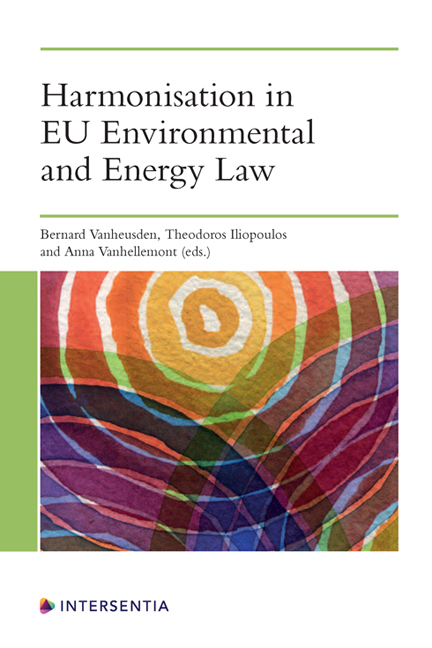European Multilingualism and Harmonisation of Environmental Law
Published online by Cambridge University Press: 26 May 2022
Summary
INTRODUCTION: MULTILINGUALISM AND TERMINOLOGY PROBLEMS WITHIN THE EUROPEAN UNION
As is well known, one of the main features of the European Union (EU) is the recognition of integral multilingualism : the languages of all Member States are recognised as official languages of the EU. This figure currently stands at 24. Without going into detail, in a very general way it can be said that the recognition of multilingualism on the legal level implies that the treaties and legal acts of general application are drafted and published in all official languages.
Consequently, the multilingual character of EU law inevitably involves a high degree of complexity, together with relevant translation problems that are likely to increase with the accession of new Member States.
As we are speaking of legal rules, this complexity involves both language and legal problems, as each legal language mirrors a specific legal culture and consequently varies from one legal system to another. The problem is not only that of understanding EU legal rules, but rather, that of their uniform application in order to achieve an effective harmonisation of the laws of EU Member States, and not a merely nominal and apparent one. In fact, since the EU law-makers’ task should be to harmonise the laws of EU Member States, they should ensure a high degree of consistency between adopted legal provisions so that the latter can be interpreted in the same way and produce the same effects in all Member States.
However, although this seems of undoubted importance for achieving the ultimate goals of the European Union, it does not always occur as a consequence of a number of issues deriving from the drafting and implementation of EU legislation, such as, in particular, those related to legal terminology, interpretation and translation specific to the EU context.
Indeed, one central problem of multilingual legislation is that of terminology and translation of legal concepts, because of the conceptual differences between the various legal systems. Moreover, with regards to the EU, even though the legislature is necessarily multilingual, it cannot rely upon a common terminology at the European level. In addition, sometimes EU law-makers do not seem to be aware of the extensive differences that exist at a conceptual and terminological level within the European legal area.
- Type
- Chapter
- Information
- Harmonisation in EU Environmental and Energy Law , pp. 71 - 84Publisher: IntersentiaPrint publication year: 2022



